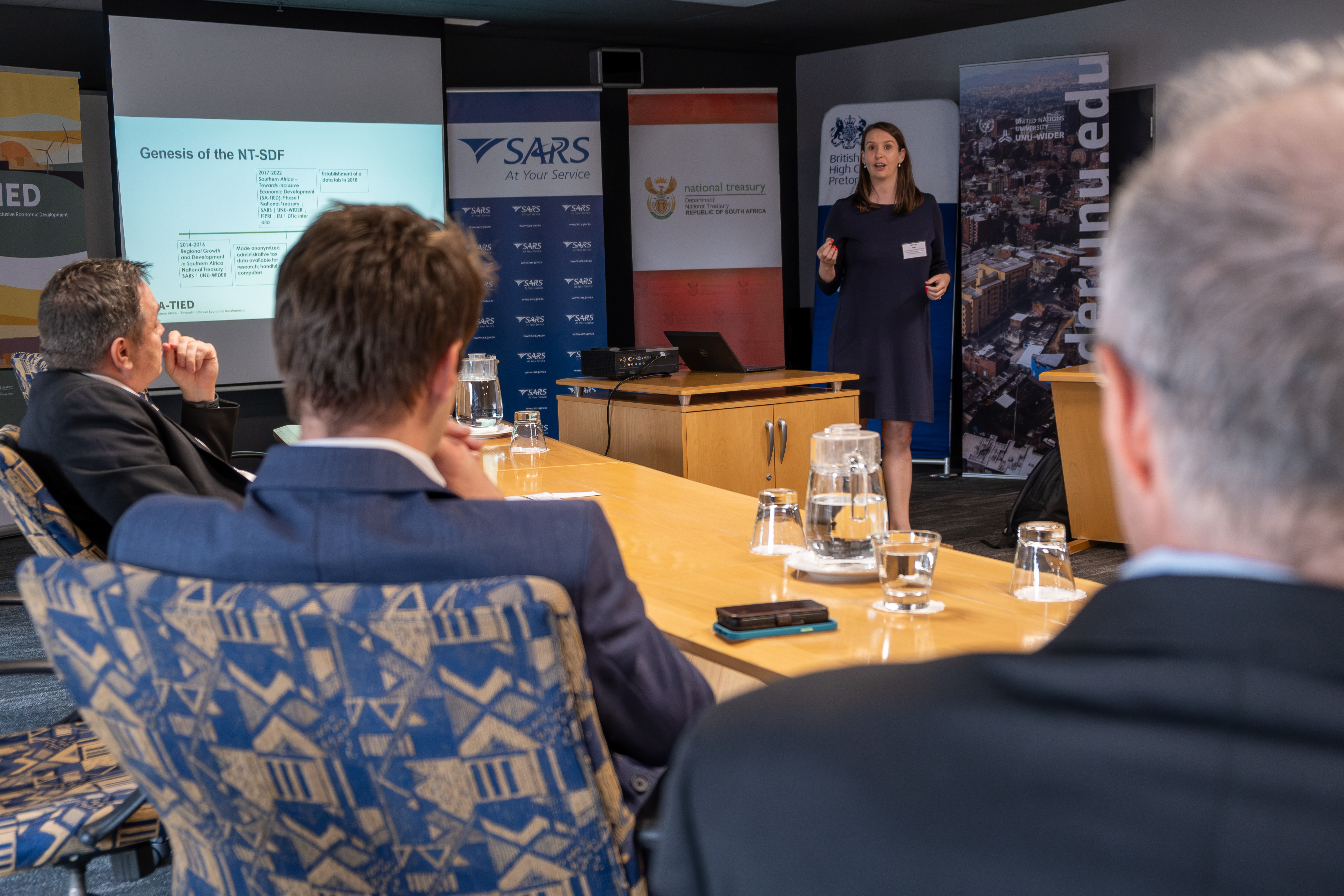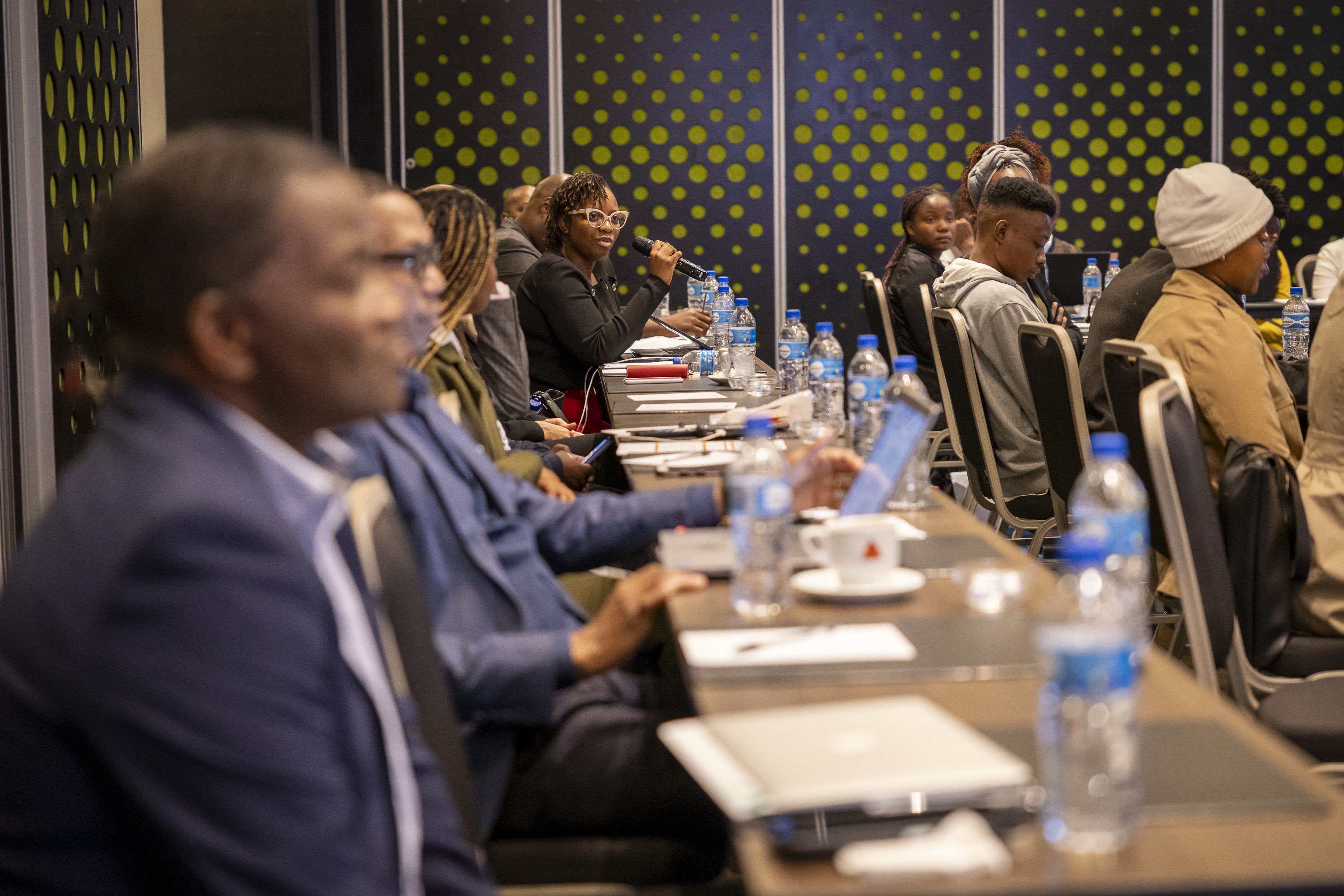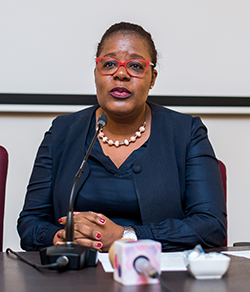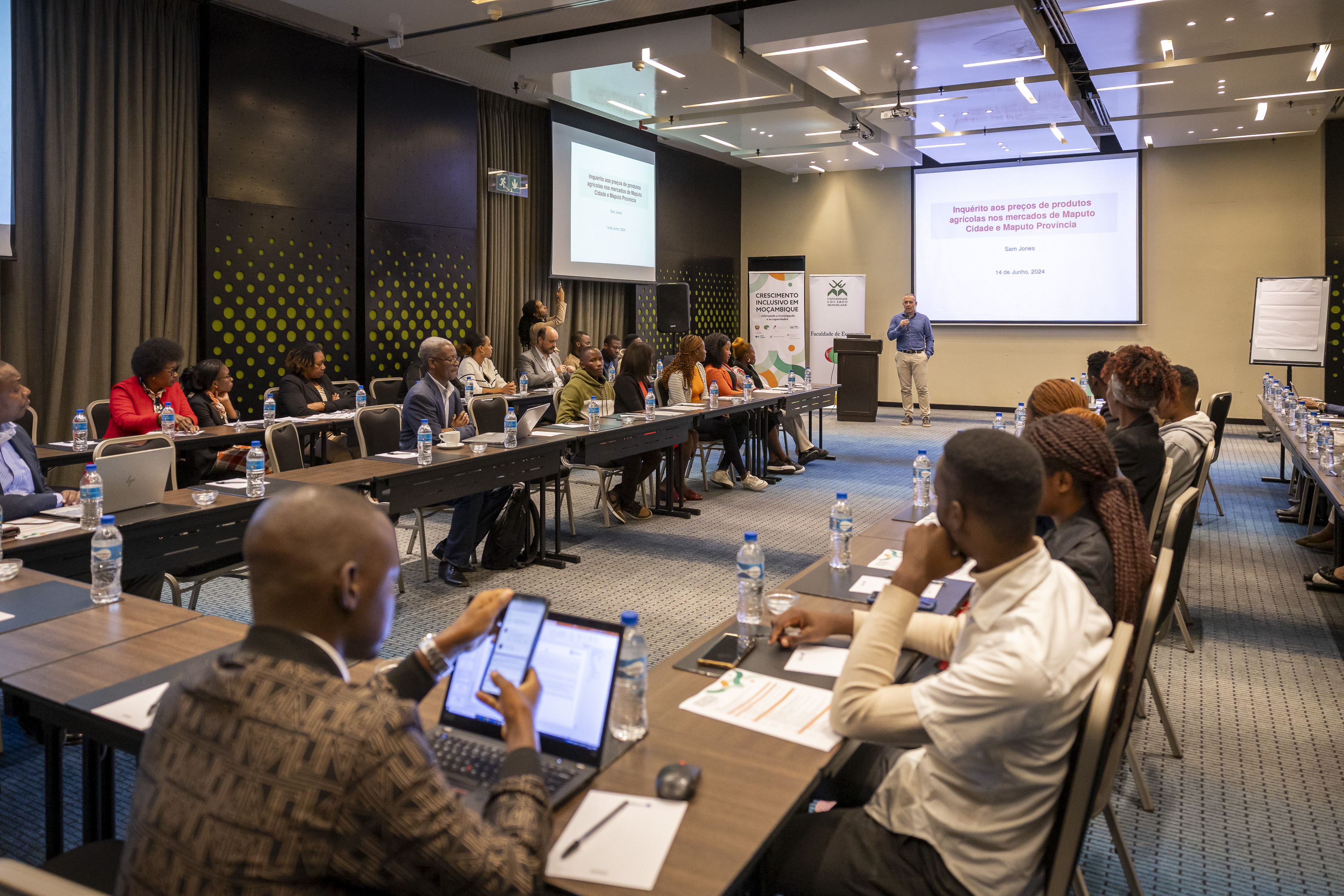Blog
Enhancing economic policymaking in Africa through trusted partnerships
In today’s rapidly changing economic landscape, the importance of evidence-based policymaking cannot be overstated. Across Africa, countries face challenges related to limited access to reliable data and insufficient analytical capacities, hindering efforts to drive economic growth and tackle issues such as poverty, inequality, and fiscal instability. Addressing these barriers is essential to strengthening governance, enhancing fiscal resilience, and fostering inclusive economic development.
UNU-WIDER collaborates with governments and institutions to address these challenges through partnerships that support the effective use of administrative data, capacity development, and cross-border knowledge-sharing. These efforts support policymakers to develop solutions that are evidence-based, contextually relevant, and aligned with national priorities.

Through the Southern Africa – Towards Inclusive Economic Development (SA-TIED) programme, access to anonymized administrative data has been enhanced via the National Treasury Secure Data Facility (NT-SDF), supporting research to inform key policy reforms. In Uganda, the Uganda Revenue Authority research lab demonstrates how administrative tax data can strengthen fiscal systems and decision-making. In Mozambique, partnerships under the Inclusive Growth in Mozambique (IGM) programme focus on addressing systemic challenges such as poverty and inequality through evidence-based approaches tailored to local contexts.
These collaborations exemplify how partnerships built on trust, shared goals, and aligned priorities can empower policymakers to navigate complex economic landscapes.
Leveraging data to reform policies in South Africa
Through the NT-SDF, the SA-TIED programme has enhanced access to anonymized administrative tax data, enabling researchers to generate insights that inform evidence-based policymaking. Measures include detailed metadata documentation to guide users, streamlined booking systems for researchers, and the provision of dummy datasets that facilitate understanding of the data’s structure and labeling. This secure repository provides a platform for rigorous analysis, which serves as the foundation for actionable knowledge to address complex economic challenges.

‘Partnering with SA-TIED enhances the National Treasury’s economic policymaking by integrating high-quality research and data-driven insights. This collaboration is essential for effectively addressing South Africa’s complex challenges, including fiscal management, inequality, and sustainable development. The research developed through the SA-TIED ensures that our policies are both informed and strategically aligned with our objectives for economic stability and inclusivity.’
Dr Duncan Pieterse, Director-General, National Treasury
Research conducted through the NT-SDF has been instrumental in shaping several policy reforms. For example, studies analyzing disparities in tax burdens across sectors, debt-equity biases, and tax enforcement informed ongoing policy debates, shaping considerations around corporate tax restructuring, including discussions that preceded the 2020 Budget. Similarly, research on the Employment Tax Incentive examined its role in supporting youth employment. While the findings suggest a limited impact on overall employment rates, evidence points to some gains in earnings for certain eligible workers. These insights contributed to discussions around the incentive’s expansion during the COVID-19 pandemic.
Insights from the NT-SDF have also guided strategies to address broader fiscal challenges. Studies on fiscal multipliers emphasized the importance of growth-oriented investments, while research into behavioral patterns at tax thresholds provided evidence for designing fairer policies that reduce avoidance and broaden the tax base. These findings have strengthened South Africa’s ability to deliver public services and invest in critical infrastructure.
The principles underpinning SA-TIED and the NT-SDF extend beyond national boundaries. By prioritizing transparency in data processes, secure and controlled access to anonymized data, and evidence-based policymaking, the SA-TIED programme demonstrates how these elements can drive actionable research and policy reforms. This approach serves as a practical framework for addressing fiscal challenges, reducing inequality, and promoting economic growth—key aspects of sustainable development. In 2024, SA-TIED was featured at the United Nations General Assembly’s Summit of the Future, showcasing its contribution to advancing data-driven solutions.
These achievements are the result of the collective efforts from SA-TIED’s diverse partners, including the National Treasury, SARS, the European Union, and the United Kingdom Foreign, Commonwealth & Development Office. UNU-WIDER has served as a convener, facilitating collaboration and ensuring that each partner’s contributions are integral to programme success.
Expanding impact in East Africa

Building on South Africa’s initiatives, we have partnered with other government entities in sub-Saharan Africa. In Uganda, we established a research lab with the Uganda Revenue Authority (URA) that leverages administrative tax data to address economic challenges and inform evidence-based policymaking.
Tailored to Uganda’s unique context, the lab fosters deeper insights into revenue dynamics and supports the design of effective fiscal policies. Our role in this partnership involves facilitating knowledge exchange and supporting the application of advanced analytical techniques, ensuring the lab is well-positioned to meet its objectives. This initiative underscores the importance of aligning methodologies with local priorities to sustainably strengthen fiscal systems. Beyond its immediate contributions, the lab has sparked broader discussions across East Africa about using administrative data to advance development, such as in Rwanda.
Supporting inclusive growth through increased research capacity and evidence-based policymaking in Mozambique
In Mozambique, our focus is on fostering inclusive growth through evidence-based policies by collecting and analysing primary and secondary data on key developmental issues, creating local analytical and research capacities, and supporting partnerships between policymakers and academia. Through the Inclusive Growth in Mozambique (IGM) programme, we collaborate with the Ministry of Economy and Finance, the University of Eduardo Mondlane, and the University of Copenhagen to address issues such as poverty, inequality, macroeconomic stability, labour market and private sector dynamics, agricultural productivity and vulnerability to climate and economic shocks. A new area of collaboration is measuring the effectiveness of social protection programmes. A key element of our work in Mozambique is responding to local demand for knowledge and developing related capabilities in local institutions. This partnership has provided critical evidence that guides annual government plans and budgets, informs policies aimed at reducing poverty, improving smallholder farmer productivity, and fostering private sector development. Since 2016, the IGM programme has been pivotal in bridging data gaps and producing high-quality evidence for policymaking, contributing to the emergence of a new generation of local economists and analysts with strong quantitative skills.

‘I view IGM as a strategic programme because it serves two key functions. Firstly, it has a crucial analytical component that helps us pinpoint vital sectors needing thorough analysis and supplies us with high-quality research to formulate evidence-based policies promoting inclusive growth. Secondly, the IGM program significantly boosts our capacity development, providing the country with more qualified staff in the areas we focus on at the ministry. This contribution is of great value to the country.’
Enilde Sarmento, Director, National Directorate of Economic Policies and Development, Ministry of Economy and Finance of Mozambique (2020–24)
Building capacity for evidence-based policymaking
Across sub-Saharan Africa, our long-term partnerships are also dedicated to strengthening institutional capacity and advancing evidence-based policymaking. Through capacity development initiatives, we collaborate with policymakers and researchers to enhance their ability to analyze and apply administrative data effectively. These initiatives address critical areas such as tax policy analysis, microsimulation modeling, and data management, providing essential tools to navigate complex fiscal and economic challenges.
The success of these efforts lies in the shared contributions of diverse stakeholders. Governments, academic institutions, and international organizations bring vital resources and expertise, ensuring that programmes are tailored to the unique priorities of local and regional contexts. By combining these strengths, we are building a foundation for more resilient and inclusive governance. Evidence-based policymaking is not only addressing immediate challenges but also supporting sustainable development across sub-Saharan Africa.

A shared vision for Africa’s future
Partnerships across sub-Saharan Africa continue to be crucial in advancing evidence-based policymaking. Initiatives like SA-TIED, the URA and ZRA research labs, and the IGM programme show how collaboration between governments, institutions, and stakeholders enhances the capacity to tackle complex developmental challenges through effective use of administrative data.
UNU-WIDER supports these efforts by facilitating access to data, enhancing analytical capacity, and fostering connections among partners. This shared approach ensures that initiatives remain locally owned and responsive to national and regional priorities while benefiting from global expertise and perspectives.
As these partnerships evolve, they provide a foundation for more resilient governance systems and inclusive policy solutions. By working together, governments, institutions, and international stakeholders are building sustainable pathways to address shared development goals, contributing to a future defined by stronger institutions and equitable growth.
This was a feature article in the 2024 WIDER Annual Report. Explore the full report here.
Abena Larbi-Odam is an Associate Communications Officer based in Pretoria for UNU-WIDER's SA-TIED programme.
Elina Penttinen is a Partnerships and Programme Officer based in Maputo for UNU-WIDER's IGM programme.
Dominik Etienne is Head of UNU-WIDER's Partnerships & Programme Unit.
The views expressed in this piece are those of the author(s), and do not necessarily reflect the views of the Institute or the United Nations University, nor the programme/project donors.
 Join the network
Join the network







